Announcing the contestants who passed the first screening
(Wear Category)
-
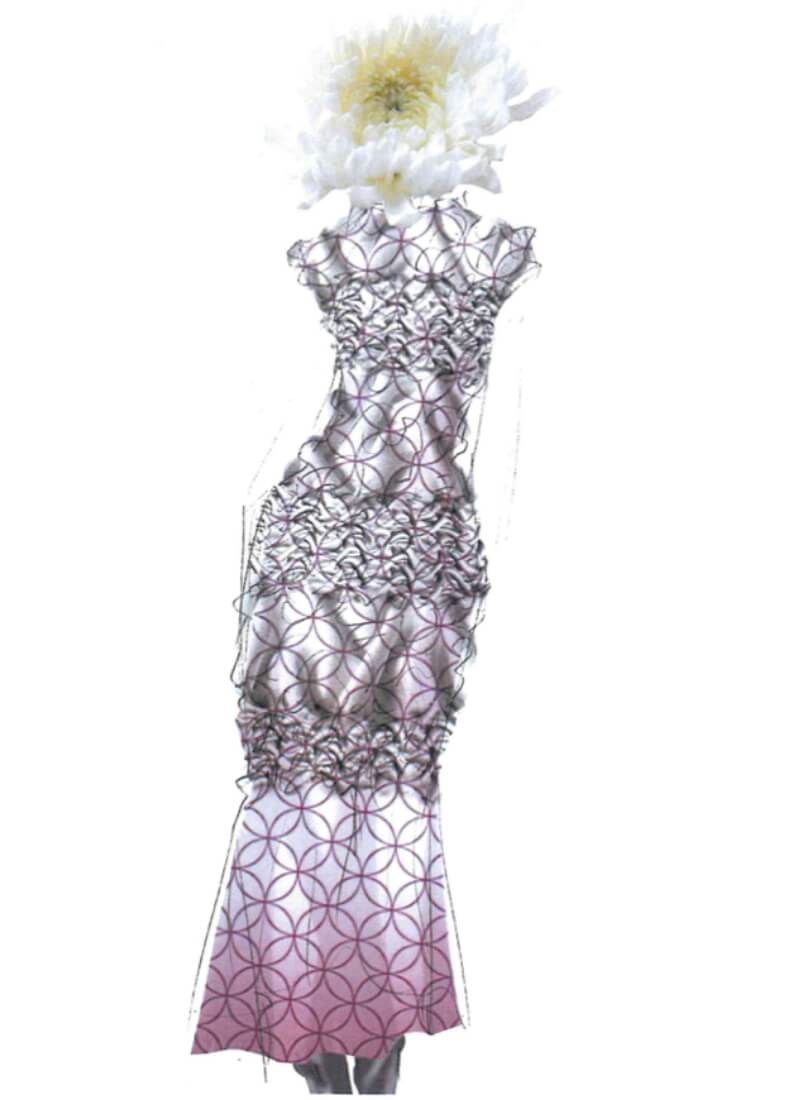
General application
赤塩 葉月・岩間 夢々
Work name: Memories
Features
- The three-dimensional texture is achieved by creating wrinkles on the front side of the material and securing them in place with glue.
- Despite its voluminous appearance, the dress remains lightweight.
- The design makes use of the linear aspects of kimono, while giving it a familiar silhouette of modern Western clothes.
-
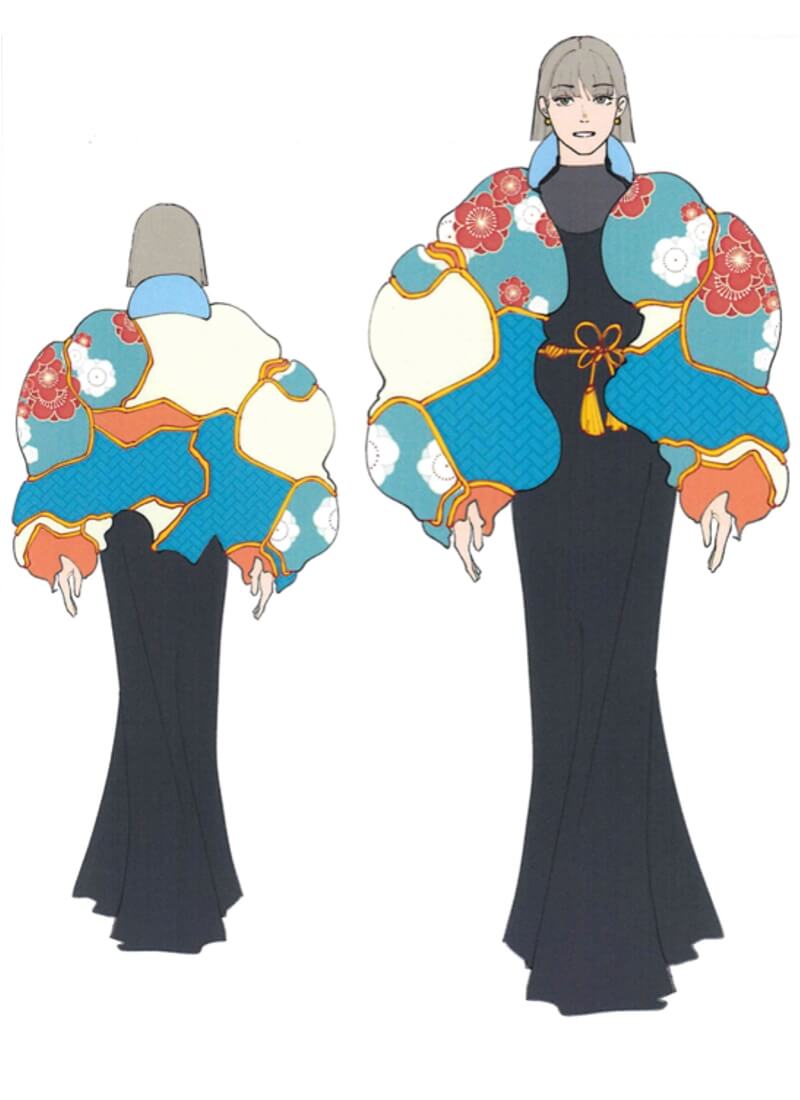
Professional Institute of International Fashion
赤間 隆太郎
Work name: Seaming together
Features
- The braids incorporated into the cracks are reminiscent of the Japanese art of kintsugi, where cracks in pottery are filled with gold.
- Down-filled sections are inspired by traditional Japanese paper manufacturing techniques.
- Using different patterns around the topic of kintsugi creates a sense of eclectic beauty.
Main comments from the jury
- The use of kimono fabric and the concept of kintsugi appeal to sustainability, and with the functionality of the down jacket, it is a good design.
- This design weaves a cohesive story around traditional techniques.
-
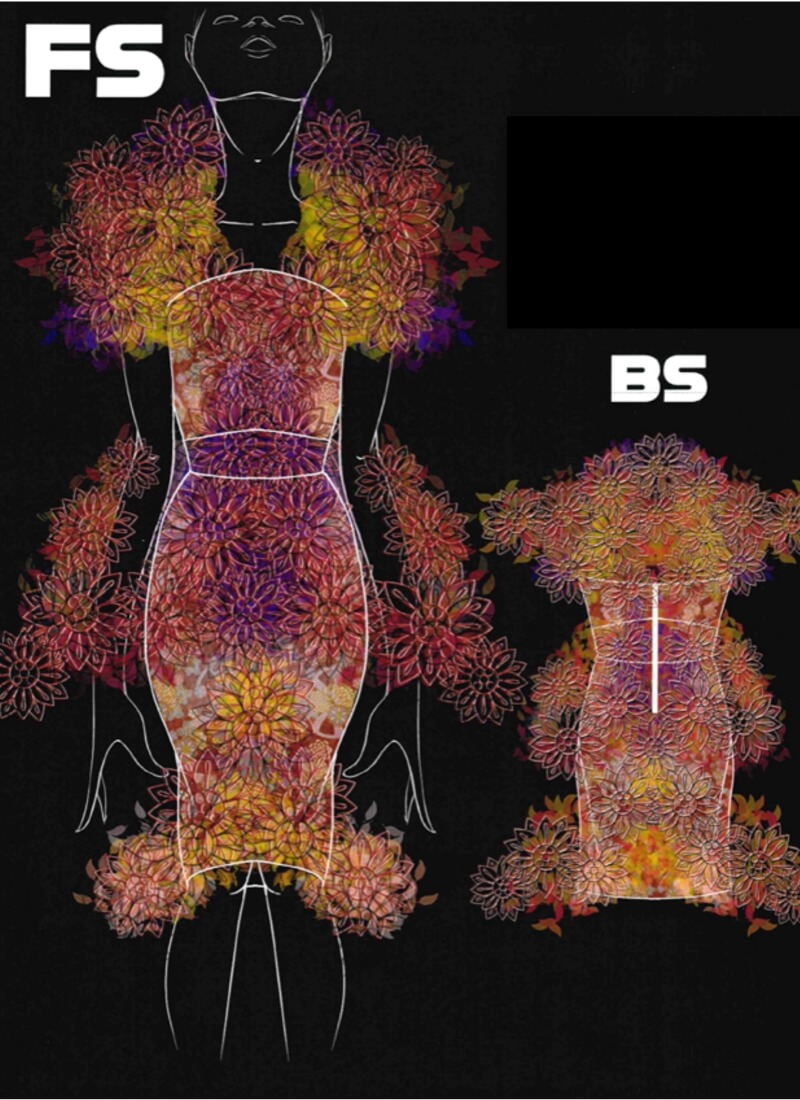
Tokyo Mode Gakuen
石野 隼斗
Work name:TSUMAMI - New possibilities for tsumami-zaiku
Features
- The tsumami-zaiku technique involves utilizing square cloth pieces to form three-dimensional petals.
- Various shapes can be achieved using both "maru tsumami" and "ken tsumami" techniques.
- The process of cutting kimono fabric into squares minimizes fabric waste.
Main comments from the jury
- This strong design will undoubtedly appeal to the market, and it is also mindful of the losses in manufacturing process.
- I imagine a beautiful couture dress that incorporates Japanese authentic crafts techniques and look forward to seeing it completed.
-
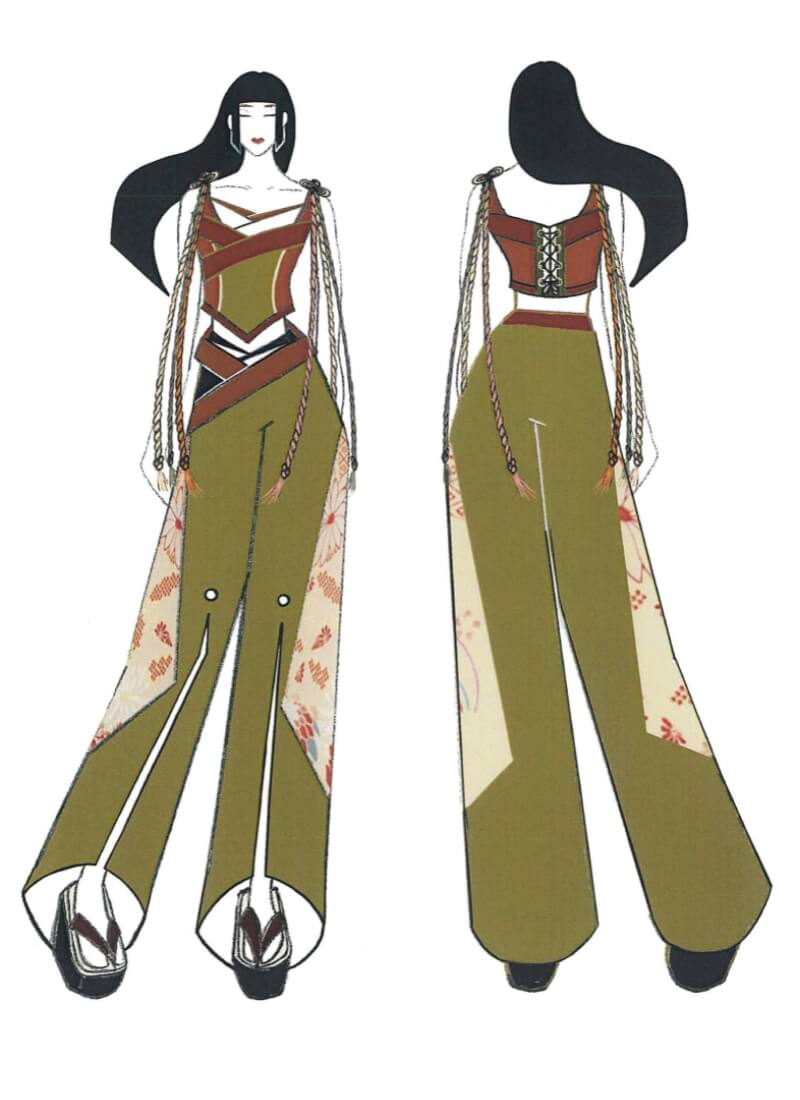
General application
内田 エリザベータ
Work name:Overlap
Features
- The design reuses segments of a kimono that is no longer used due to stains.
- The design around the waist of the pants is inspired by the kimono collar, emon.
- Combining a corset and a kimono incorporates both Western and Japanese elements.
Main comments from the jury
- This design feels fresh, incorporating kimono into a mix of the American hippie culture of the 60s and 70s and the rave culture of the 2000s.
-
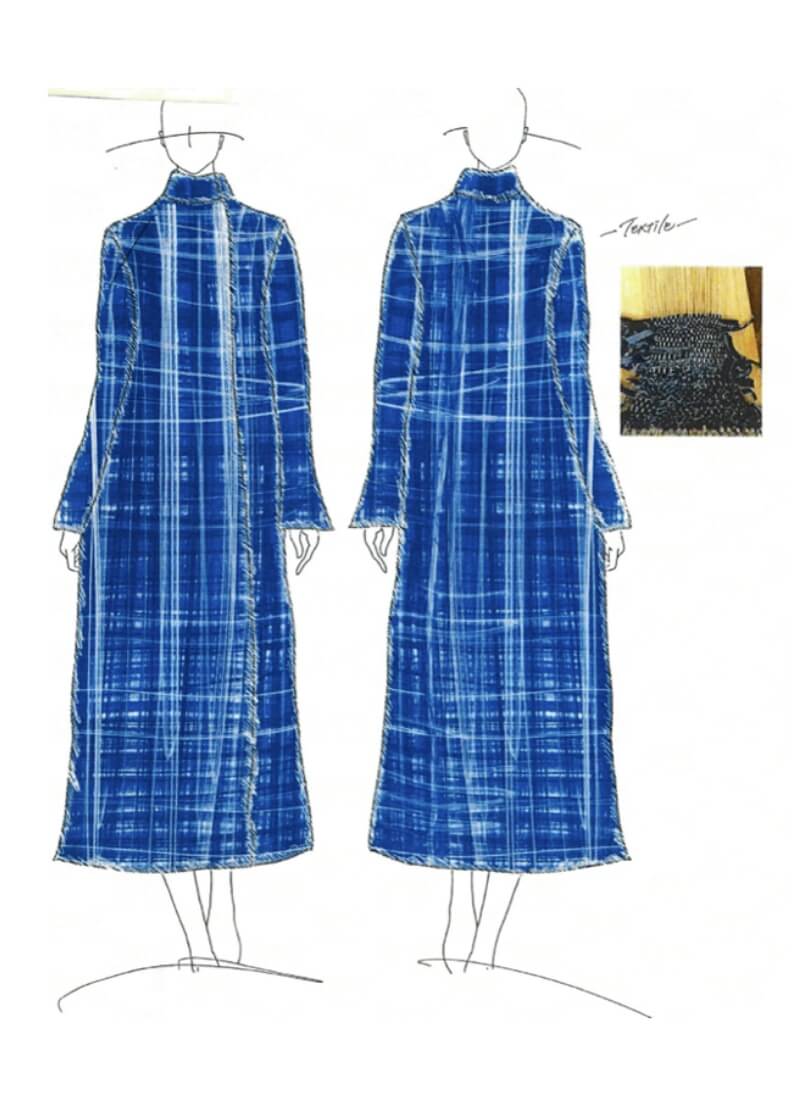
Tokyo Mode Gakuen
佐藤 愛海
Work name:Sense of regret over waste
Features
- This design aspires to spread the Japanese concept of "mottainai," a sense of regret over waste.
- It uses unique fabric made from denim, manufactured using a technique used in the Edo period to make clothing that protects against the cold.
- Using a linear pattern helps minimize waste when cutting fabric for tear repairs.
Main comments from the jury
- I feel that customers will be highly satisfied with the concept and design.
-
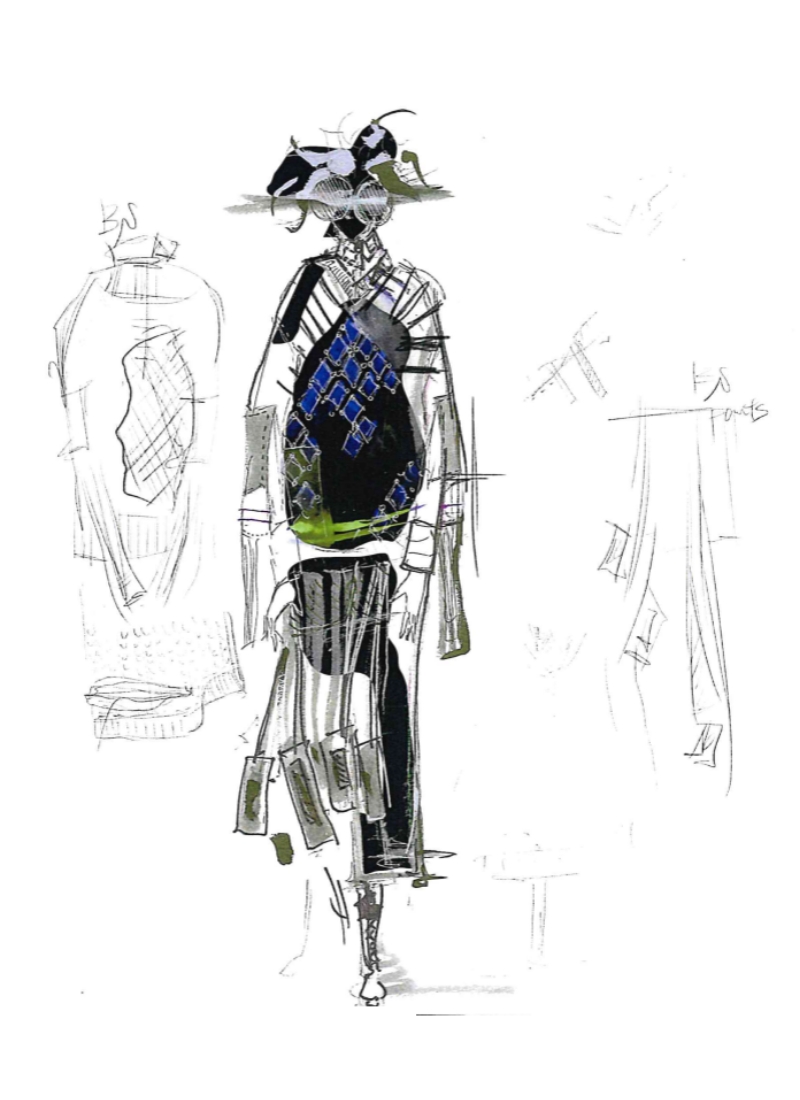
Bunka Fashion College
立澤 拓都
Work name:Fraying
Features
- The design depicts a kimono fraying and falling apart.
- Layering materials and textures allows fabrics to peek out from under the frayed material.
- The image of "fraying" is conveyed by creating a patchwork of worn-out fabrics.
Main comments from the jury
- I appreciate the strength of this design, and it will likely generate a response in the market. The point of taking a sustainable approach is also commendable.
- I'm looking forward to seeing how realistically this idea can be reproduced.
-
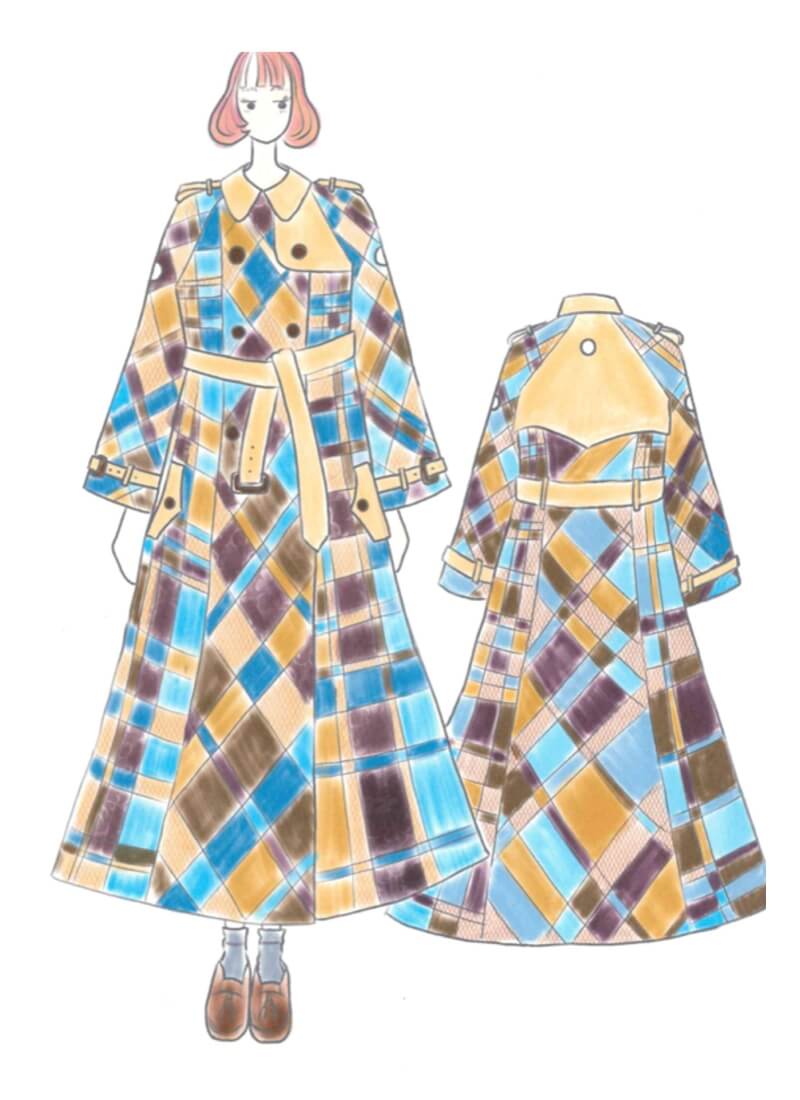
General application
田中 みちる
Work name:× 〜かける〜
Features
- This piece uses diverse fabrics, taking advantage of their unique characteristics.
- It explores the beauty of combining kimono fabrics with other materials and combinations of various patterns.
- To make it more practical, the textile used in this piece was made by knitting together typical trench coat materials and kimono fabric, achieving a thicker fabric suitable for outerwear.
Main comments from the jury
- The idea of weaving fabrics makes a clear concept and finds rich expression for orthodox items.
- A lot can be achieved by combining different materials of the same color.
-
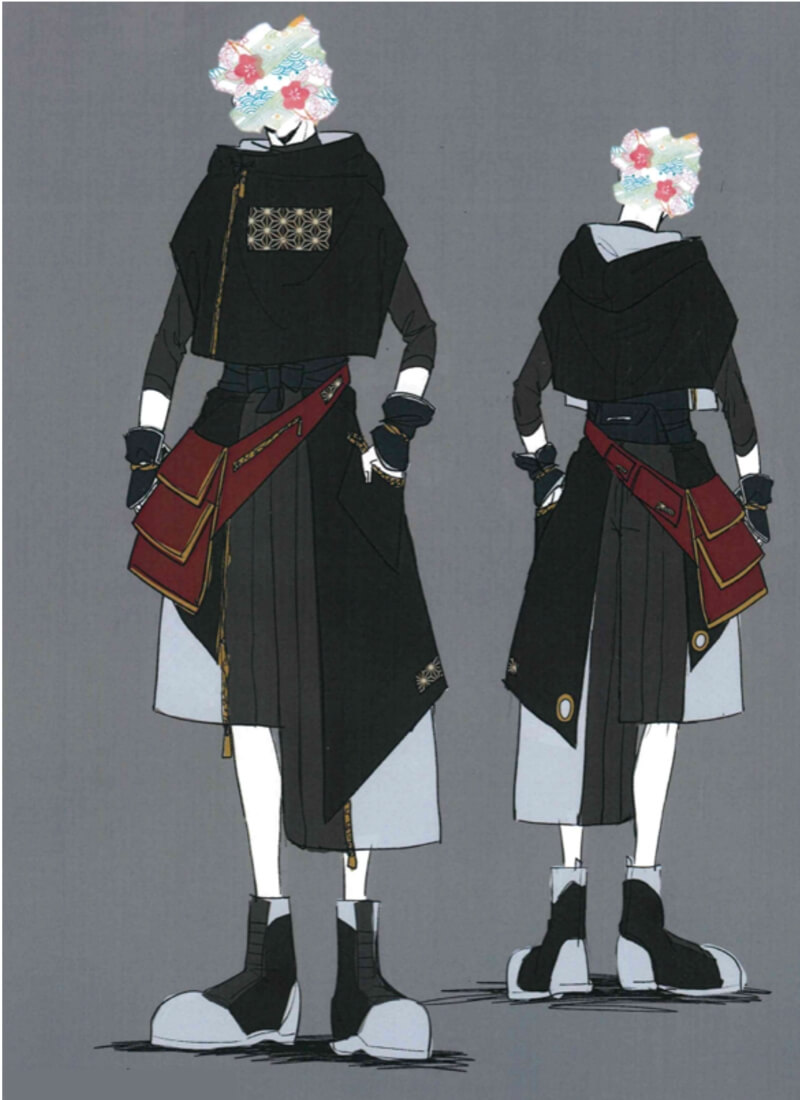
Bunka Fashion College
田村 香奈
Work name:Japanese workwear
Features
- The upper body garment is inspired by the sokutai, a traditional formal court dress worn by the Heian aristocrats, and the lower body garment is inspired by the hakama trousers for horse riding.
- The pochette on the waist is a tribute to the armor of the Muromachi period.
- This casual design incorporates elements of Japanese clothing and enables easy movement.
Main comments from the jury
- This design doesn't simply utilize kimono materials but also incorporates the history of kimono use to create a modern, fashionable, and cool look.
-
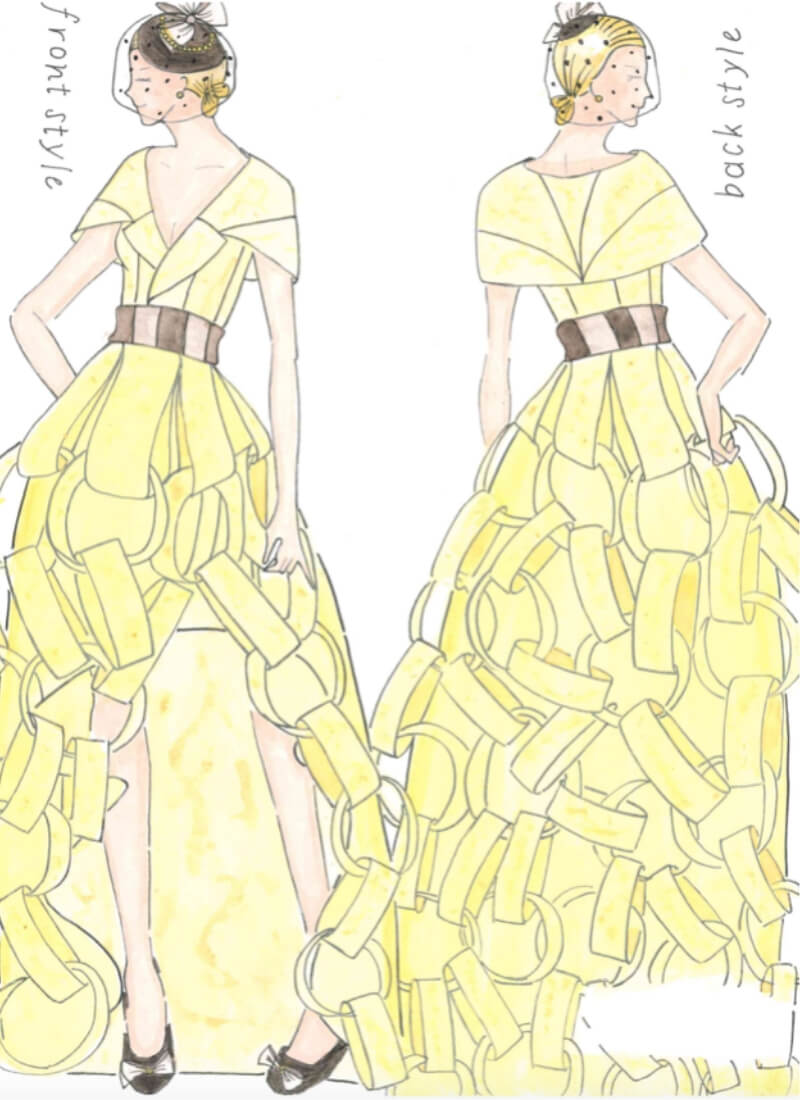
Tokyo Mode Gakuen
恒松 杏渚
Work name:Wazme
Features
- This design uses Shinto-inspired "wakazari" decorations to express a sense of "Japaneseness" and "nostalgia."
- Kimono fabric is incorporated into the skirt lining and the ring-shaped decorations to achieve a unique look.
- The belt around the waist and all accessories are Western-style, including ballet flat shoes and a ballet cloche hat as a hair accessory.
Main comments from the jury
- The design of the ring decorations is a creative and standout feature of this design. The ring decorations also represent the Shinto tradition.
-
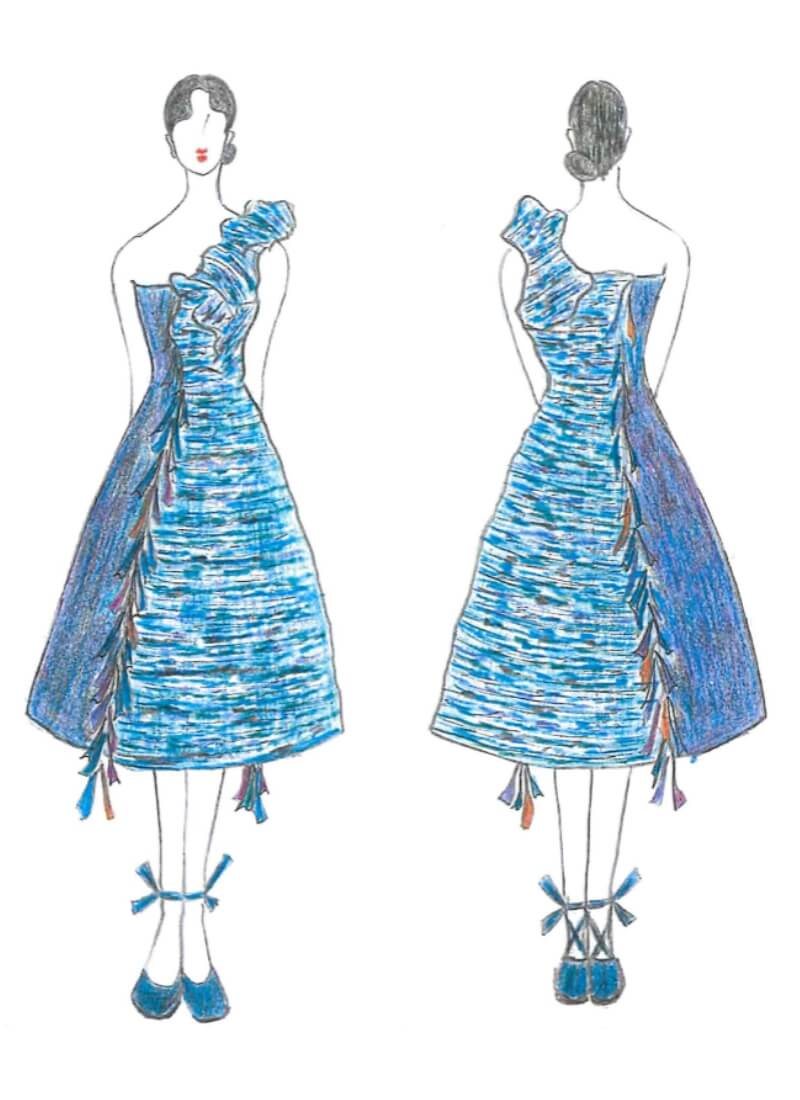
Tama Art University
中村 瑛美
Work name:Special day
Features
- This piece nurtures the warmth and softness that can only be achieved by handwork.
- The design uses draping techniques to create a body-fitting three-dimensional silhouette.
- The edges of the woven fabric can be reused for fringe trim.
Main comments from the jury
- This design demonstrates a thorough study of the concept that considers the market's preferences.
- Traditional techniques are also well incorporated into the design.
-
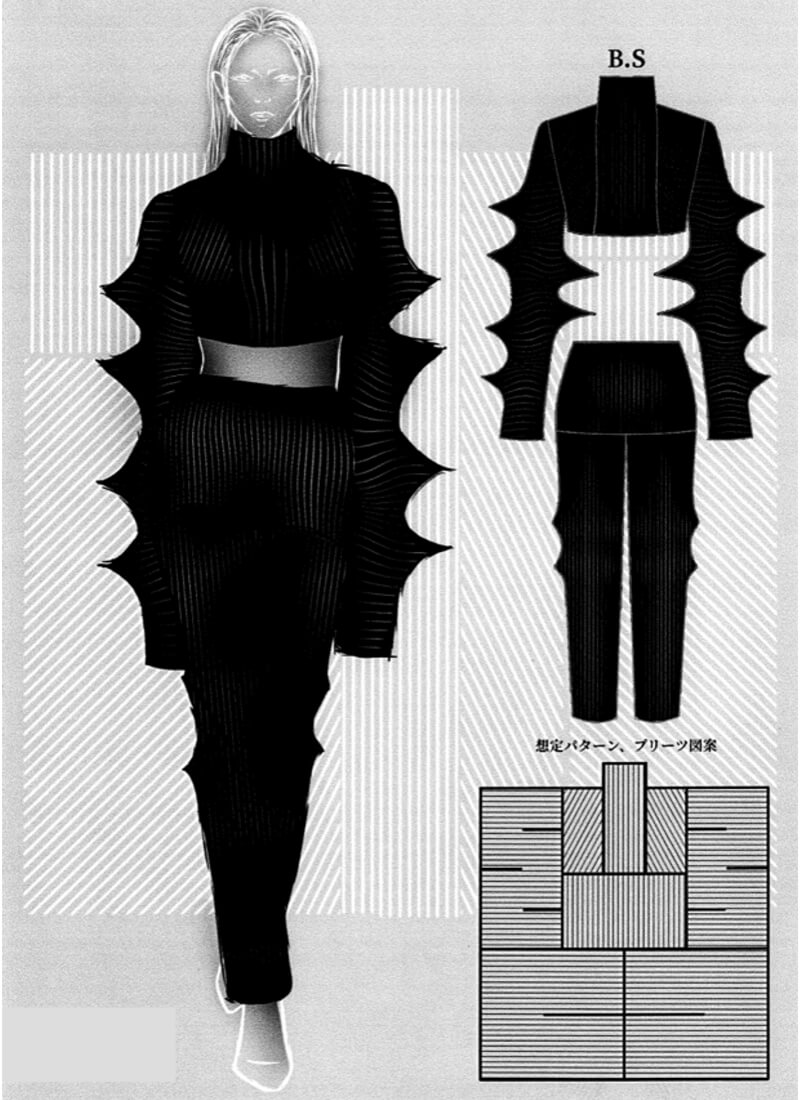
Bunka Fashion College
並木 力也
Work name:Flow
Features
- This design is based on a flat pattern, able to accommodate various body shapes, and uses pleated processing for better fit.
- The pleats are used to express the sense of flow of time.
- The pattern is based on a rectangle, allowing for efficient use of fabric without waste, addressing social issues such as SDGs.
Main comments from the jury
- It is a strong design based on understanding the characteristics of kimono and Western clothing that will speak to the market.
- It is extremely stylish despite its minimalistic pattern and design.
-
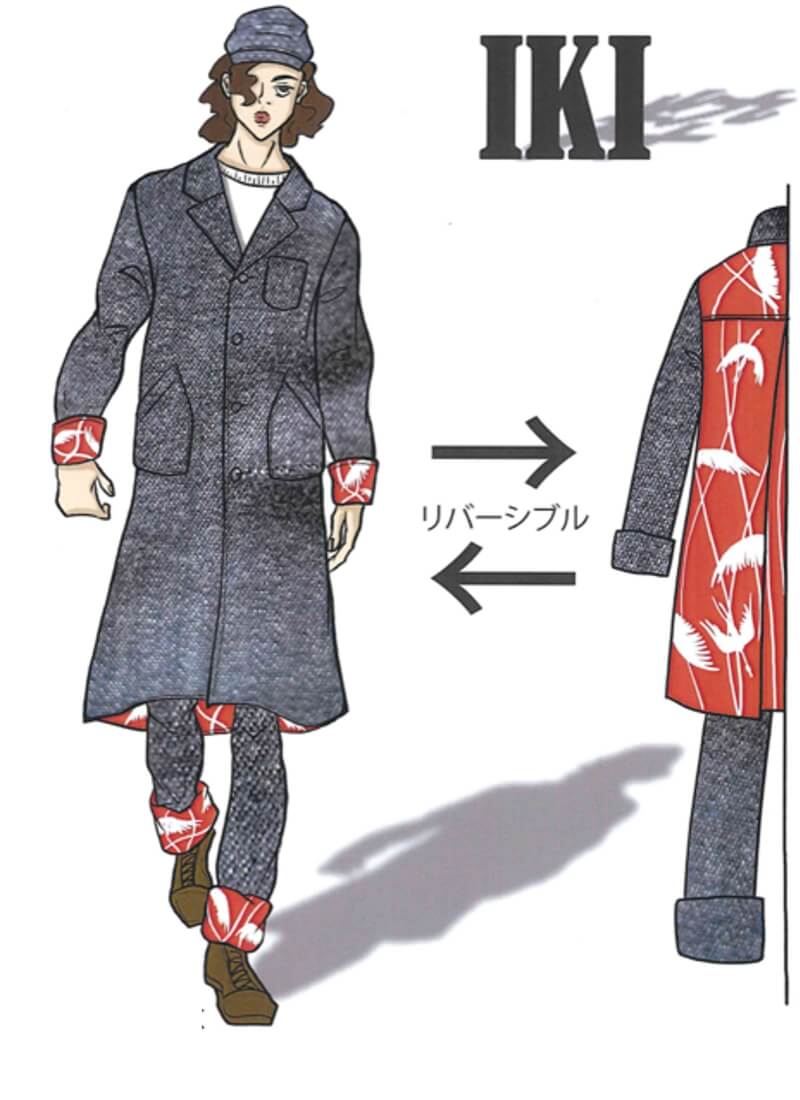
Professional Institute of International Fashion
成瀬 擁汰
Work name:Essence
Features
- This piece expresses the unique Japanese aesthetic of "showing off by hiding" that comes from the tradition of "uramasari."
- It incorporates a Western workwear design that is more durable and functional than kimonos.
- The "essence" of this reversible garment expresses the aesthetic sense of "showing off by hiding."
Main comments from the jury
- The concept design is very interesting.
-
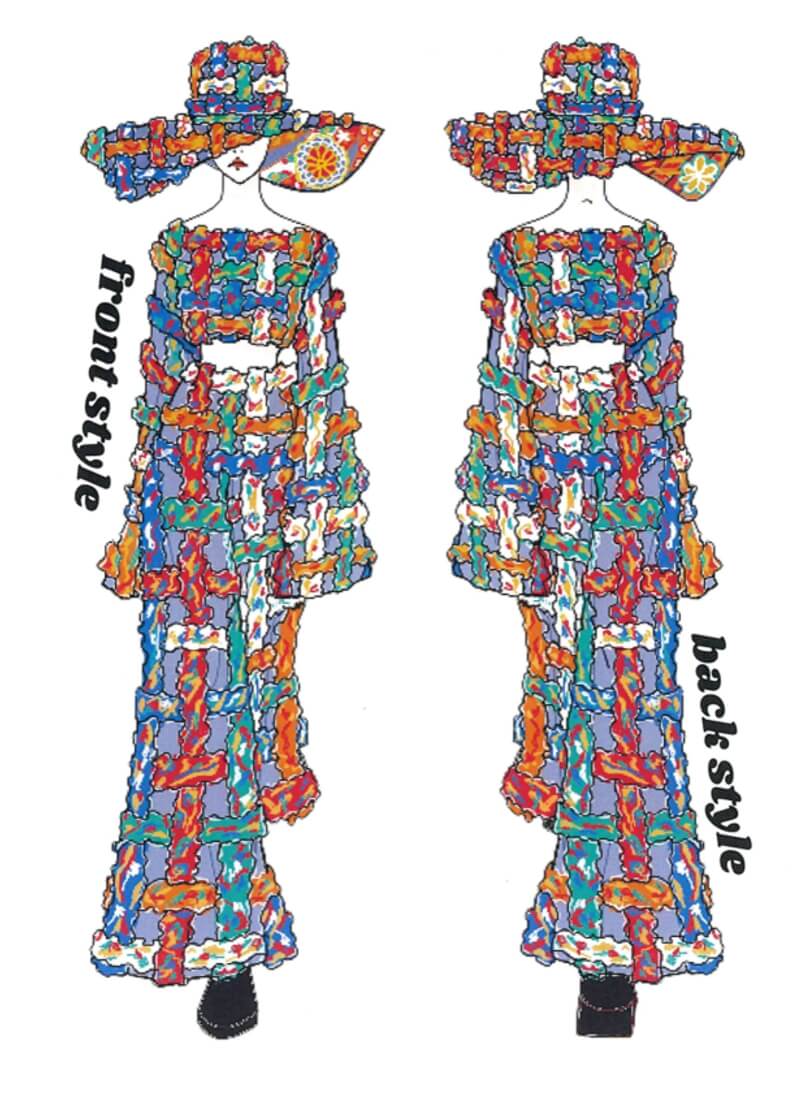
Tokyo Mode Gakuen
西吉 絢海
Work name:Check KIMONO out
Features
- Long rectangular pieces of fabric are gathered and knitted together into a checkered pattern.
- The base of the garment is made of translucent kimono fabric with colorful scraps arranged on top.
- The use of a hat adds to the overall elegance of the kimono.
Main comments from the jury
- Fantastic ideas and approach to sustainability.
- I highly appreciate this design that makes you want to try it on immediately.
-
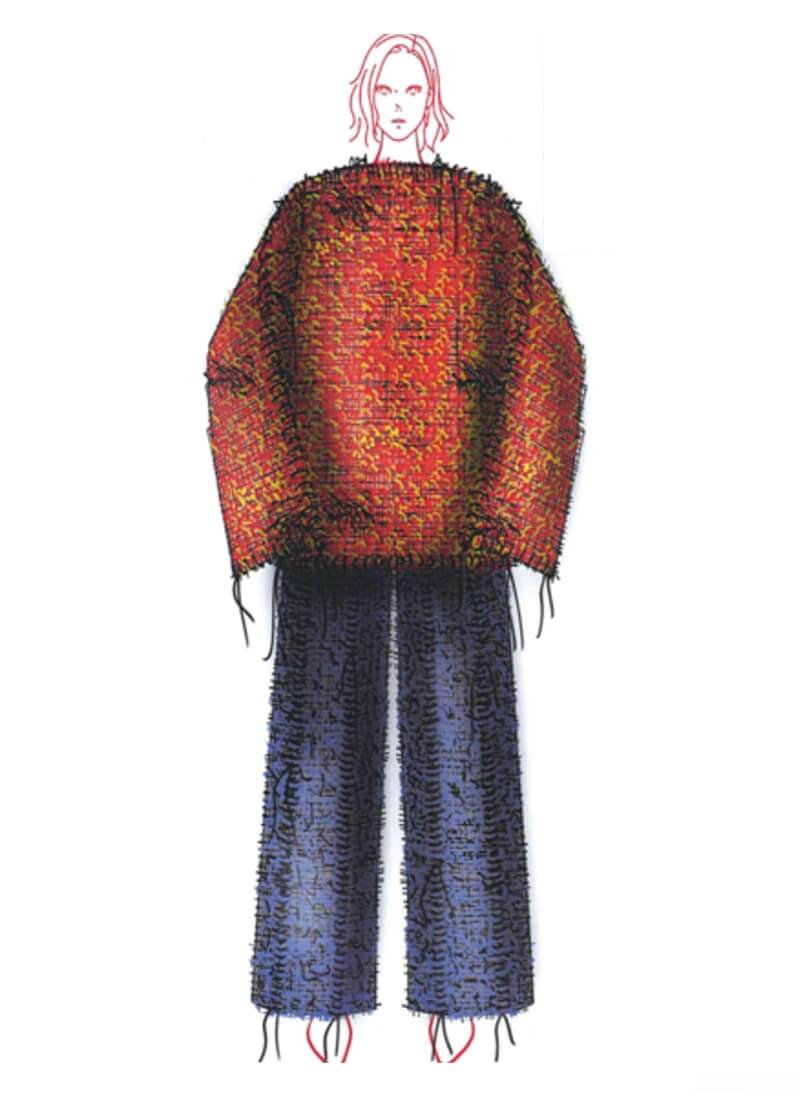
Professional Institute of International Fashion
野村 大紀
Work name:nomadic KIMONO
Features
- With simple flat cutting, this design creates a nomadic feel through the use of fabric. - Looped fabric and loose silhouette.
- The bottom is made of 6 alternating panels to express the beauty of wearing things such as patchwork and sakiori weaving, which embody the spirit and treasure of valuing things.
Main comments from the jury
- The designer's thought went beyond the Japanese element of kimono, considering what happens after the clothes are made.
- I would like to complement the choice of materials. It's nice to see a modern silhouette that makes use of traditional sakiori.
-
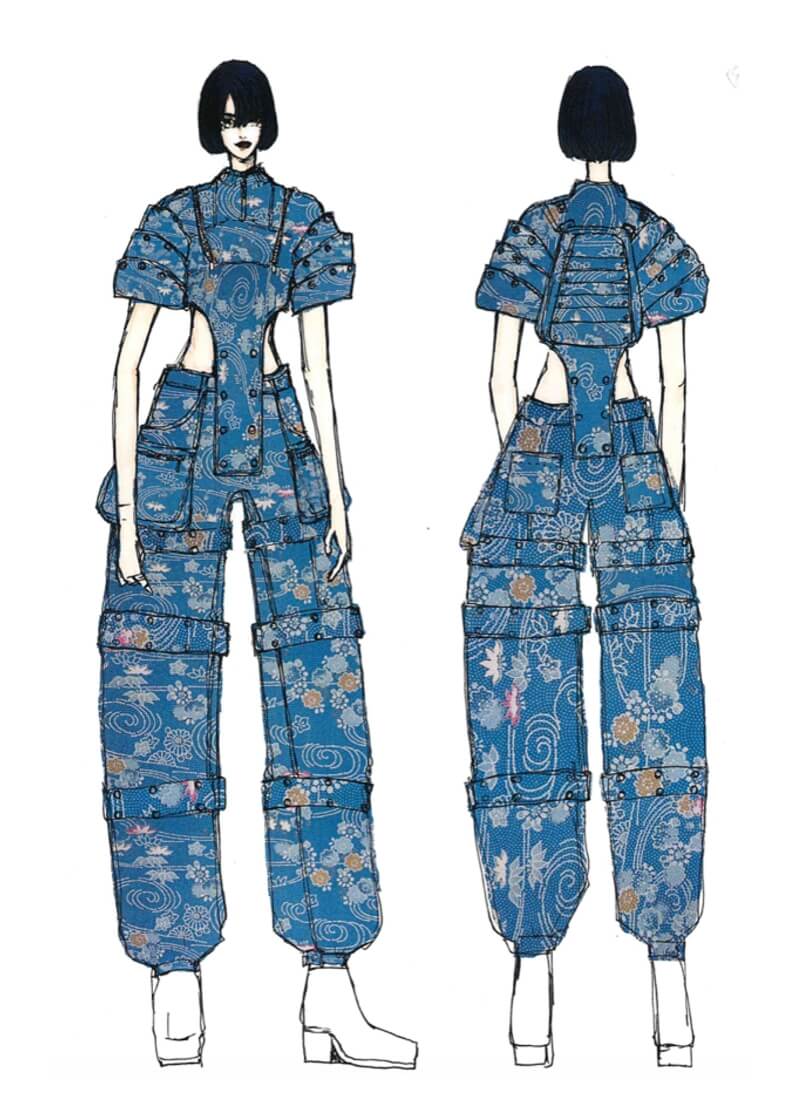
Tokyo Mode Gakuen
野元 嗣英
Work name:Space-kimono-suit
Features
- The focus is on the similarity between spaceships and kimonos: they both allow for replacing old parts.
- In addition to spacesuit-like details, the length of the sleeves and pants can be customized by redoing the buttons.
- Accessories can be removed freely.
Main comments from the jury
- I feel the strength of the design in its ability to connect things that are originally far apart by digging deep into the concepts, resulting in both a good design as an output and matching the customer's needs.
- The unexpected combination of kimono and spacesuit is a good fit for modern times.
Preliminary judging shortlist


Main comments from the jury